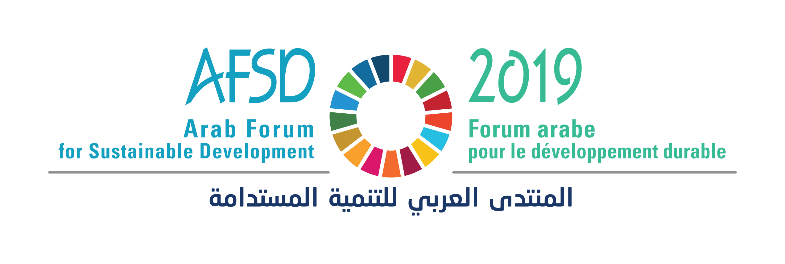Press release: UN Agencies convene panel discussion on understanding the impact of intersectionality on gender equality through a disability lens
Date:

Beirut, April 10, 2019 - During the 2019 Arab Forum for Sustainable Development, UN Women, UNICEF, WHO, UNFPA, ESCWA and UNESCO convened a special session on the topic of Leaving No One Behind: Policy approaches to recognise intersectionality and promote inclusivity for women and girls with disabilities in sustainable development.
The discussion examined the multi-dimensional nature of inclusivity in relation to gender equality and the principle of “Leave No One Behind” for the implementation of Agenda 2030, and in particular how inclusivity and intersectionality are experienced by women and girls with disability.
Dr. Heba Hagrass, former Secretary General of the National Council for Disability Affairs, Member of the Egyptian Parliament, and Board Member of the Egyptian National Council for Women, noted that women and girls with disabilities face multiple forms discrimination because of being a woman and having a disability. This includes an increased risk of exposure to gender-based violence. She said “representation and participation of women with disabilities in policy-making is fundamental to build inclusive societies, where all people are given an opportunity to be empowered and their voices heard regardless of their gender, social or health status”.
Speaking to UN Women’s efforts to address intersectionality around disability, Ms. Simone ellisOluoch-Olunya, UN Women Regional Women’s Political Participation Advisor, said “we have embraced the United Nations Disability Inclusion Strategy and the UN Women's Disability strategy and are taking our first steps towards accelerating their implementation in the Arab states with concrete actions such as: expanding our network amongst organizations of and for persons with disabilities, conducting our first EnAbility Audit on environmental accessibility for persons with disability both partners and staff, and supporting our personnel by providing capacity training on disability inclusivity for the purpose of stronger programs, operations and partnerships”.
Ms. Rasha Abouelazm, Regional Programme Manager a.i. UN Women Men and Women for Gender Equality Programme highlighted the engagement of men and boys in achieving gender equality through its IMAGES research across various countries in the MENA region. The study has offered a foundation for policy level as well as community level action, which included non-conventional approaches to address disability amongst other themes. Ms. Sabah Al Bahlani, Parliamentarian and Chief Executive Officer at the Association of Early Intervention for Children with Disability from Oman, reflected on the need to alter community mindsets in order to ensure the inclusion of all girls and boys with disability.
Research suggests that factors such as socio-economic status, access to essential services, age, and disability intersect and impact on women and girls’ experience of gender equality and empowerment. Inequalities are exacerbated in certain contexts such as conflict and sustained poverty. It is thus important to identify and unpack the multiple experiences of women in the Arab States region to consider the different experiences that determine development outcomes. The role of Member States to improve data collection in order to inform better-targeted government support and address barriers faced by women and men with disabilities, was noted by Ms. Angela Zettler, ESCWA Associate Social Affairs Officer.
The session highlighted the contributions of women and girls with disabilities to the implementation of Agenda 2030. In the words of Ms. Safiya Al Bahlani, art gallery founder and advocate for people with disabilities from Oman, “life will never be without challenges. Take the first step by believing in yourself and use the challenges as your weapon to overcome the obstacles.”
